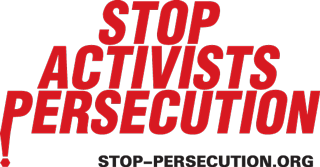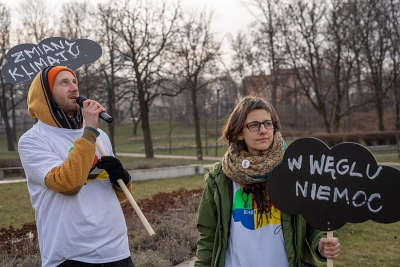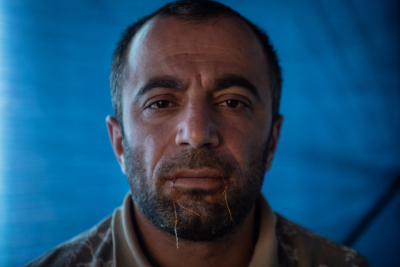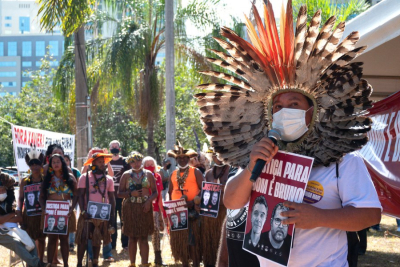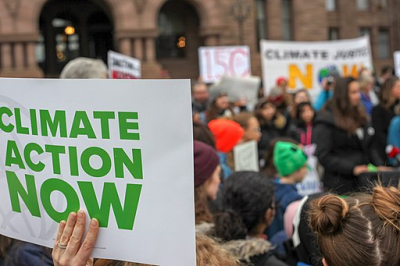An activist from Ecoaction was detained together with her colleague and placed in a detention cell where they stayed for 12 hours, during which they had no access to a lawyer. Both of them were accredited with COP24 observers and participated in side events. Both were eventually released due to lack of evidence.
It was not an isolated case. Poland, as the country host for COP 24, had already been involved in the international community in July, when its restrictive bill "on specific solutions related to the organization of sessions of the United Nations Framework Convention on Climate Change in the Republic of Poland" was passed by Poland's parliament. The new law, specifically for the occasion of COP24, allowed the Polish authorities to "collect, obtain, gather, verify, process and use information, including personal data about persons posing a threat to public safety, including outside the borders of the Republic of Poland,” if there was a "justified assumption" they would be staying in Poland. The law allowed the Polish authorities to snoop on COP24 participants and forbade spontaneous demonstrations during the event.
This did not go unnoticed. A number of international NGOs and United Nations agencies raised concerns about the law being passed and pointed out that the law contradicted the Aarhus Convention, violated basic human freedoms, and was completely unconstitutional.
Their concerns were legitimate. At the time of COP 24, at least 14 activists, including a member of the official Georgian delegation, Nugzar Kokhreidze (from the Dialogue of Generations organization), were taken from Poland and/or deported. Some of them were stopped at airports and others were pulled off trains or even temporarily detained, as the case with the Ecoaction activists shows. In most cases, the police officers were unable to give them a reason for their detention or simply stated that the person was on the list of dangerous people. The activists were from different countries, including Germany, Belgium, Ukraine, Georgia, Kyrgyzstan, and Russia. According to the Polish authorities, the people detained were on the alert list and represented a national threat. The civic society argued explained they were prevented from attending the climate march that was held on December 8.
"Hours before the climate march, a peaceful non-violent action, which was registered and approved by the respective authorities on December 8, at least 10 observers from civil society organizations in Eastern Europe, Caucasus and Central Asia were detained at the border and denied entry on allegations of being "a threat to public order and security." Those who are only planning to come to COP24 are also at risk. People are detained for long periods in ill-fitted rooms, searched, and interrogated. Then, they are deported. For the first time in COP's entire history, they declared climate justice, key human rights, and liberties."
Svitlana Romanko, Regional Coordinator of 350.org in Eastern Europe,
Caucasus and Central Asia (EECCA)
Sources:
ENG 07/12/2013 Joint statement of the 350.org group (350.org)
UKR 09/12/2018 Press release of Ecoaction (Ekodiya)

